How To Scrape European Hotels From Booking.com For Hotel Listings In 2025?
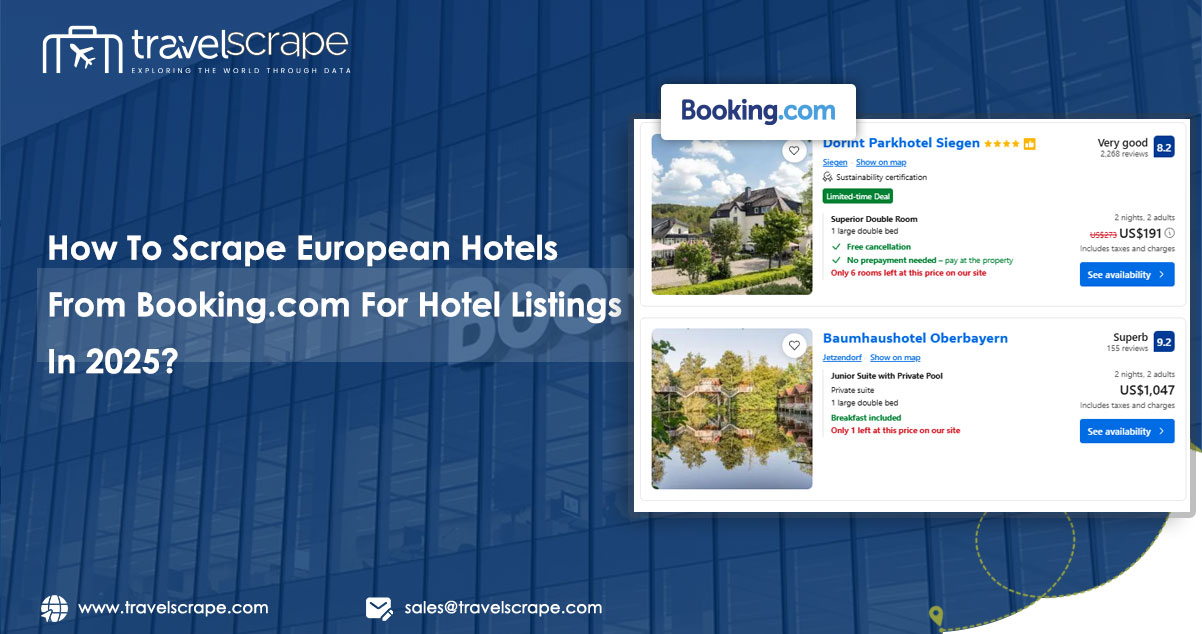
Introduction
In today’s rapidly evolving hospitality industry, having access to accurate and comprehensive hotel data is no longer just a competitive edge — it’s become essential for success. Whether you’re a travel agency aiming to provide better deals, a market researcher analyzing industry trends, or a hotel chain striving to outperform competitors, the ability to Scrape European Hotels From Booking.com can play a vital role in shaping innovative business strategies.
This detailed blog is designed to help you navigate every aspect of extracting valuable hotel data from one of the world’s largest online travel platforms. From understanding legal considerations to exploring the best technical methods, we’ll walk you through how to harness this data effectively. Moreover, with the increasing demand for up-to-date information, Real-Time Hotel Availability Scraping 2025 is emerging as a game-changer — allowing businesses to access live inventory and stay ahead in the dynamic travel ecosystem.
Why Hotel Data Matters in 2025?
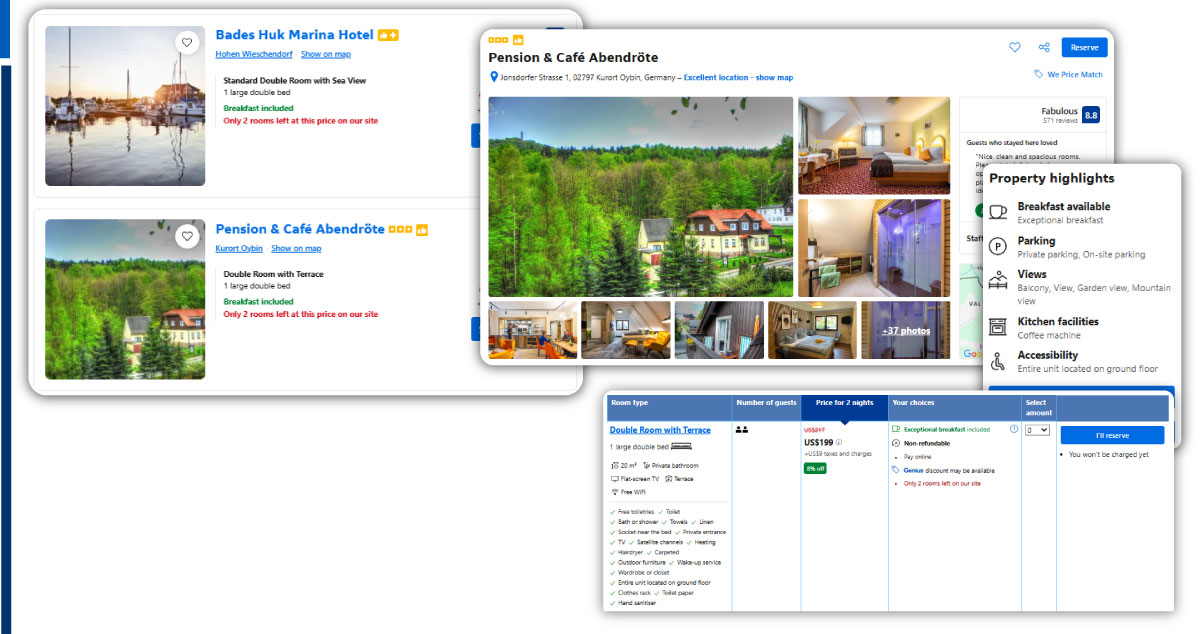
In 2025, the European hospitality landscape is evolving faster than ever, driven by changing guest expectations, emerging travel trends, and increasing competition. In this dynamic environment, the ability to Scrape European Hotel Listings From Booking.com has become a vital resource for businesses looking to stay ahead.
Access to real-time hotel data empowers organizations to uncover valuable insights and make smarter, data-driven decisions across multiple business areas:
- Dynamic Pricing Optimization: Track and analyze pricing trends across regions and seasons to fine-tune revenue strategies and stay competitive.
- Competitive Intelligence: Monitor competitor offerings, customer ratings, and review patterns to uncover market gaps and potential growth areas.
- Market Expansion Research: Discover emerging hospitality trends and identify untapped or underserved locations for strategic expansion.
- Guest Experience Enhancement: Analyze thousands of customer reviews to refine services, address pain points, and elevate the guest experience.
As 2025 unfolds, the importance of Hotel Data Intelligence continues to surge. Leading organizations are harnessing advanced analytics and real-time hotel data to unlock deeper insights — enabling more innovative strategies and sustainable growth in an increasingly competitive hospitality market.
Understanding Booking.com's Data Structure
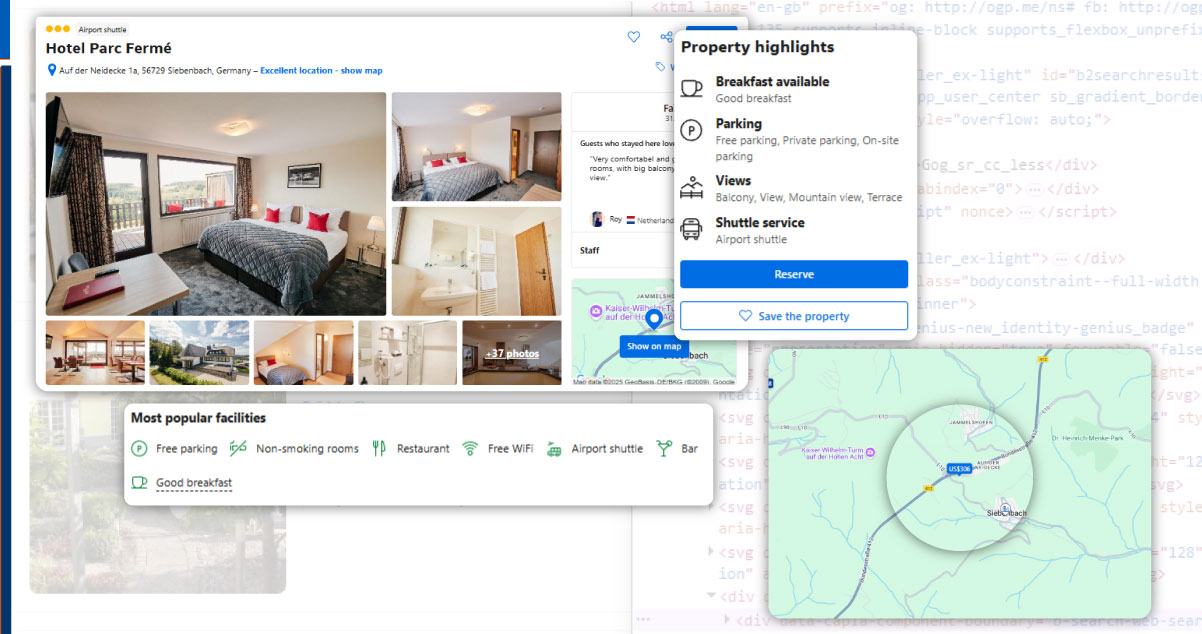
When planning to Scrape Booking.com Hotel Listings, understanding Booking.com's data structure is a crucial first step. The platform organizes its hotel information in a well-structured yet intricate format, providing access to several essential data elements, including:
- Hotel profiles: Details such as hotel name, star rating, complete address, and geographical coordinates.
- Room types and availability: Information on different room categories, real-time availability status, and occupancy limits.
- Pricing information: Comprehensive pricing details, including seasonal rates, exclusive deals, promotions, and special offers.
- Guest reviews and ratings: Feedback from previous guests covers overall impressions and ratings broken down by category.
- Amenities and facilities: The hotel provides services, features, and conveniences.
- Images and descriptions: Visual content and detailed written descriptions highlighting the hotel's appearance and offerings.
- Policies and restrictions: This section provides essential information on booking rules, cancellation policies, and other terms and conditions applicable to guests.
However, Booking.com implements advanced dynamic content loading and robust anti-scraping mechanisms. This makes applying advanced techniques for Booking.com Data Extraction 2025 essential. A thorough understanding of how the website's content is structured and loaded is key to building an efficient and successful scraping strategy.
Key Benefits of Hotel Data Scraping
| Benefit | Description | Business Impact |
|---|---|---|
| Market Intelligence | Comprehensive view of pricing trends across European markets | Informed pricing strategies and competitive positioning |
| Competitor Analysis | Detailed insights into competitor offerings and guest feedback | Strategic advantage in service development |
| Demand Forecasting | Access to real-time availability and booking patterns | Optimized inventory management and revenue opportunities |
| Customer Insights | Analysis of guest preferences and review sentiment | Enhanced guest experience and targeted marketing |
| Product Development | Understanding of amenity preferences and emerging trends | Innovation in hospitality offerings |
Legal Considerations Before You Start
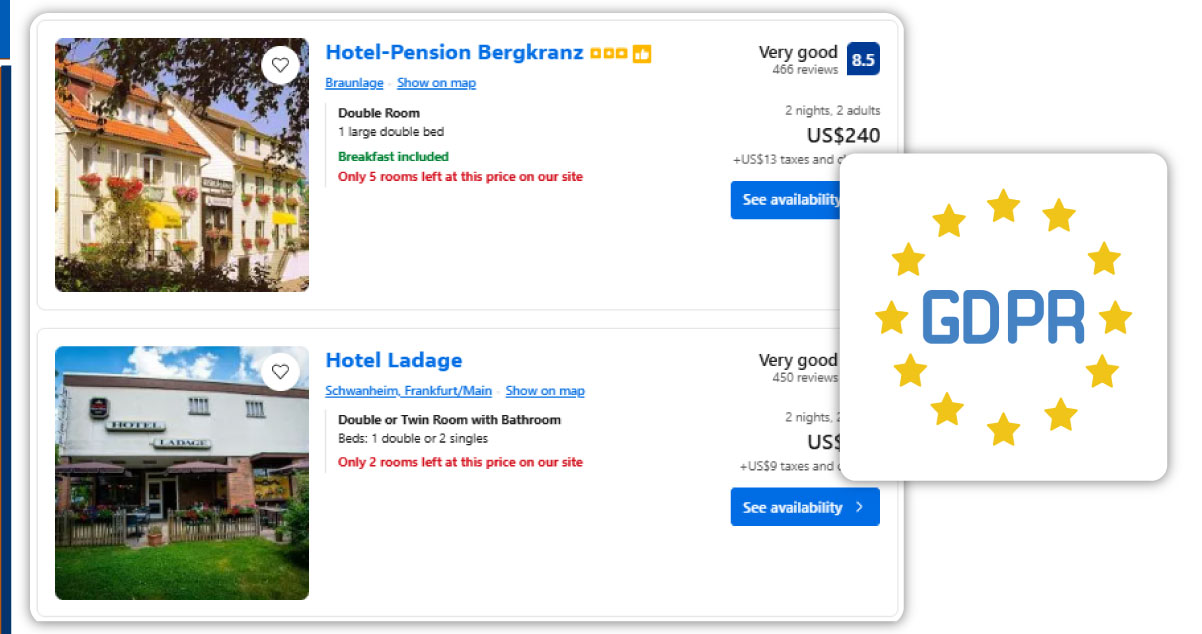
Before initiating any process to Extract European Hotel Information From Booking.com, it is essential to carefully evaluate the legal and ethical considerations associated with data collection.
Addressing these factors at the outset can help mitigate potential risks and ensure responsible data usage.
1. Terms of Service Compliance
When planning to scrape data from Booking.com, it’s crucial to prioritize Terms of Service Compliance. Booking.com’s Terms of Service restrict unauthorized data scraping activities.
Therefore, before initiating any scraping process, it’s essential to:
- Review their robots.txt file to identify permitted access areas and understand crawling restrictions.
- Adopt responsible scraping practices to ensure minimal server load and avoid disrupting Booking.com’s infrastructure.
- Consider exploring and utilizing their official API options (if available), as this provides a legitimate and structured way to access specific datasets within the platform’s usage policies.
Adhering to these guidelines ensures compliance with legal boundaries and helps maintain ethical data scraping practices.
2. Data Protection Regulations
When dealing with hotel data, particularly in regions like Europe, businesses must operate within the boundaries of data privacy laws to ensure compliance and maintain trust.
Key areas to focus on include:
- GDPR Compliance: It is crucial to ensure that any personal data collected is processed lawfully, transparently, and by GDPR requirements.
- Data Storage: Adopt secure and reliable methods for storing all extracted information to prevent unauthorized access or data breaches.
- Intended Use: Clearly define and limit data collection strictly for legitimate business purposes that align with legal and ethical guidelines.
Technical Approaches to Scraping
Businesses can consider multiple technical approaches regarding Web Scraping Booking.com Hotels in 2025. Each method has benefits, depending on the specific data requirements and project complexity.
1. Custom Scraping Scripts
Building custom scraping scripts with Python, leveraging powerful libraries such as BeautifulSoup and Selenium, provides unmatched flexibility tailored to specific data extraction needs.
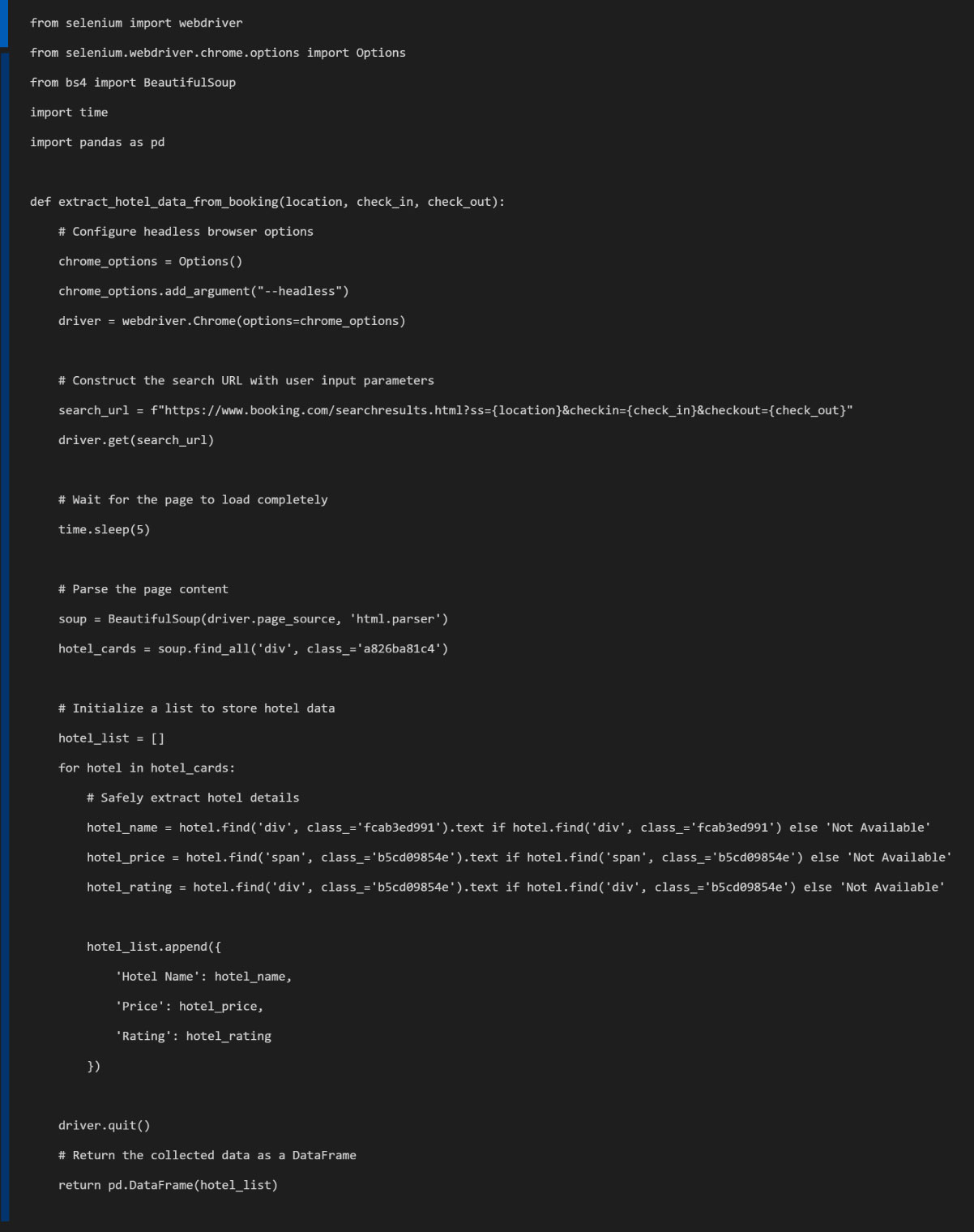
2. Specialized Scraping Frameworks
Tools like Scrapy offer robust and flexible frameworks that are purpose-built to handle large-scale web scraping projects efficiently and effectively.
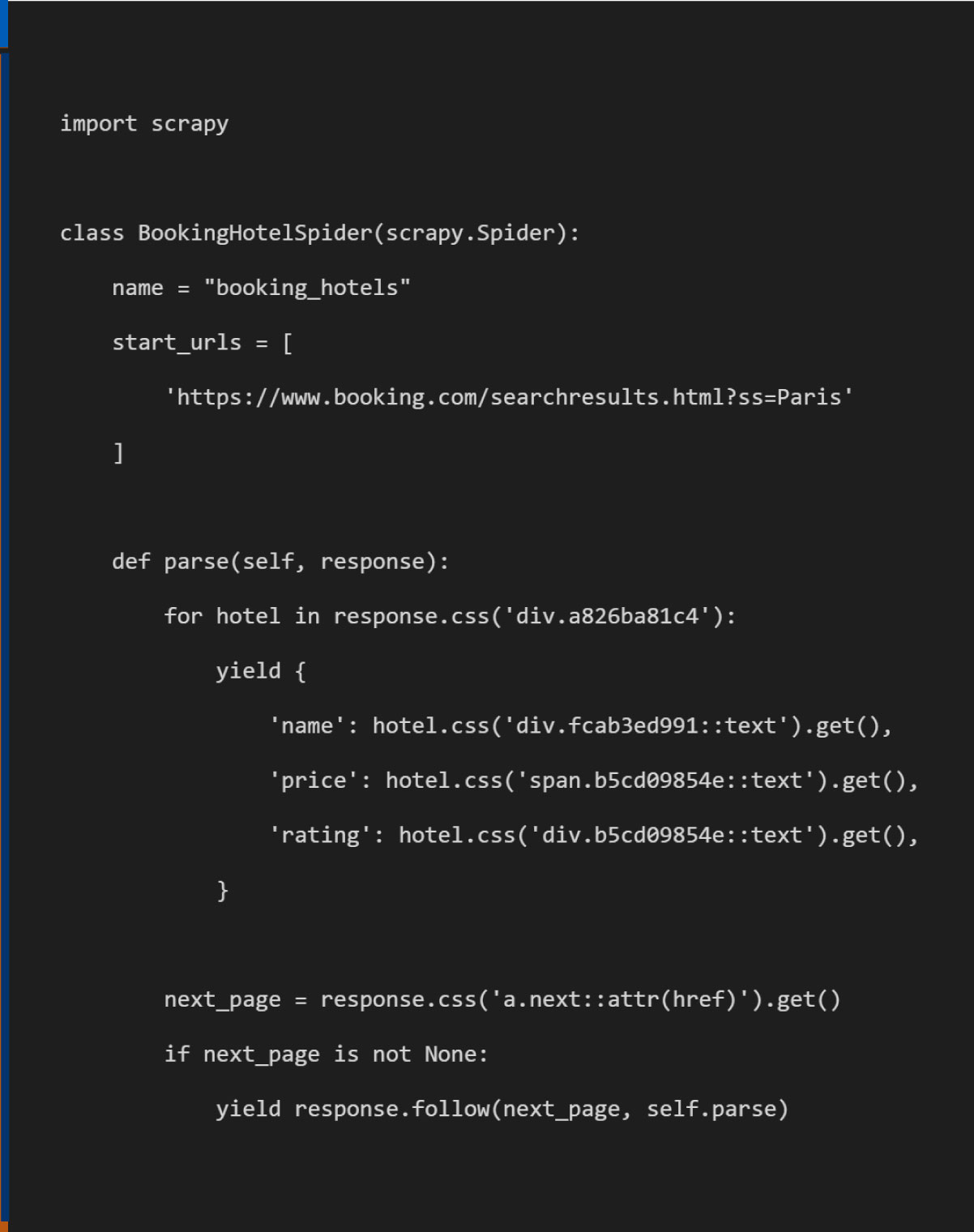
3. Third-Party APIs and Services
Many specialized Hotel Data Scraping Services today provide pre-built solutions explicitly designed for platforms like Booking.com. These solutions simplify the entire data extraction process and efficiently manage the technical challenges and legal compliance aspects of web scraping.
Leveraging such third-party APIs allows businesses to seamlessly access structured and accurate data without investing heavily in in-house scraping infrastructure or worrying about regulatory complexities.
4. Proxy Rotation and Session Management
Implementing robust proxy rotation and effective session management strategies is essential to ensure uninterrupted and accurate Real-Time Hotel Availability Scraping 2025. These advanced techniques help mitigate the risks of IP bans and detection by platforms like Booking.com.
Key methods include:
- Residential proxy rotation to distribute requests across multiple IPs reduces the risk of IP bans and enables geo-targeted data collection.
- Request throttling to control the speed and frequency of requests, mimicking human browsing patterns and minimizing the chances of triggering anti-bot mechanisms.
- Browser fingerprint randomization to generate unique browsing identities for each session, helping to avoid tracking and detection by advanced anti-scraping technologies.
- Cookie and session management to maintain session continuity, handle authentication, and simulate genuine user behavior for more accurate and reliable data retrieval.
Step-by-Step Guide to Implementation
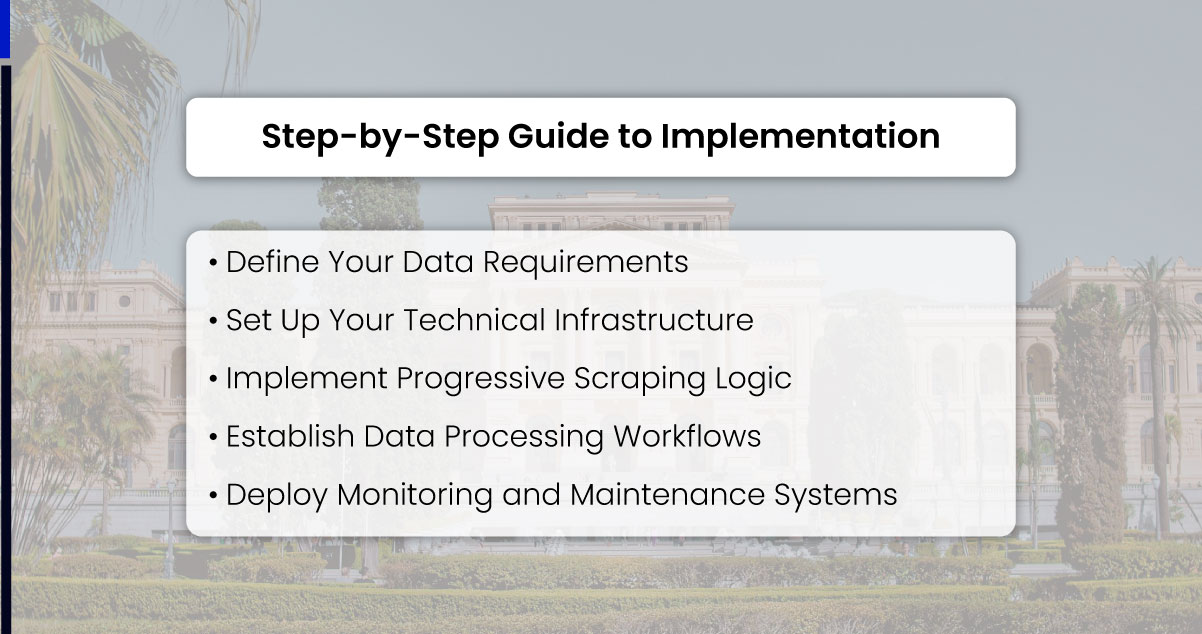
If you're considering Web Scraping Booking.com Hotels Data, here is a comprehensive, step-by-step roadmap to guide the successful implementation of your scraping strategy, ensuring accuracy, efficiency, and scalability.
- Define Your Data Requirements
- Set Up Your Technical Infrastructure
- Implement Progressive Scraping Logic
- Establish Data Processing Workflows
- Deploy Monitoring and Maintenance Systems
Before you begin coding, ensure you clearly understand the specific hotel data points you need, the priority European locations to focus on, the frequency of data updates, and the volume of data required for your project.
Prepare the necessary tools for the job, including selecting the appropriate programming language and libraries, establishing a proxy rotation system, setting up a database for storage, and creating a processing pipeline to clean and analyze the data.
Build your scraping solution step-by-step: begin with essential hotel listing extraction, then add detailed page scraping for more comprehensive data, manage pagination handling, include error recovery and retry mechanisms, and implement anti-detection measures.
Once the data is gathered, implement processes like data cleaning and standardization, schema mapping to your database, deduplication to ensure accuracy and historical tracking to analyze trends over time.
To maintain scraper reliability, set up performance monitoring, conduct regular data quality checks, adapt to website changes, and keep your system updated to align with Booking.com’s evolving structure.
Data Processing and Analysis
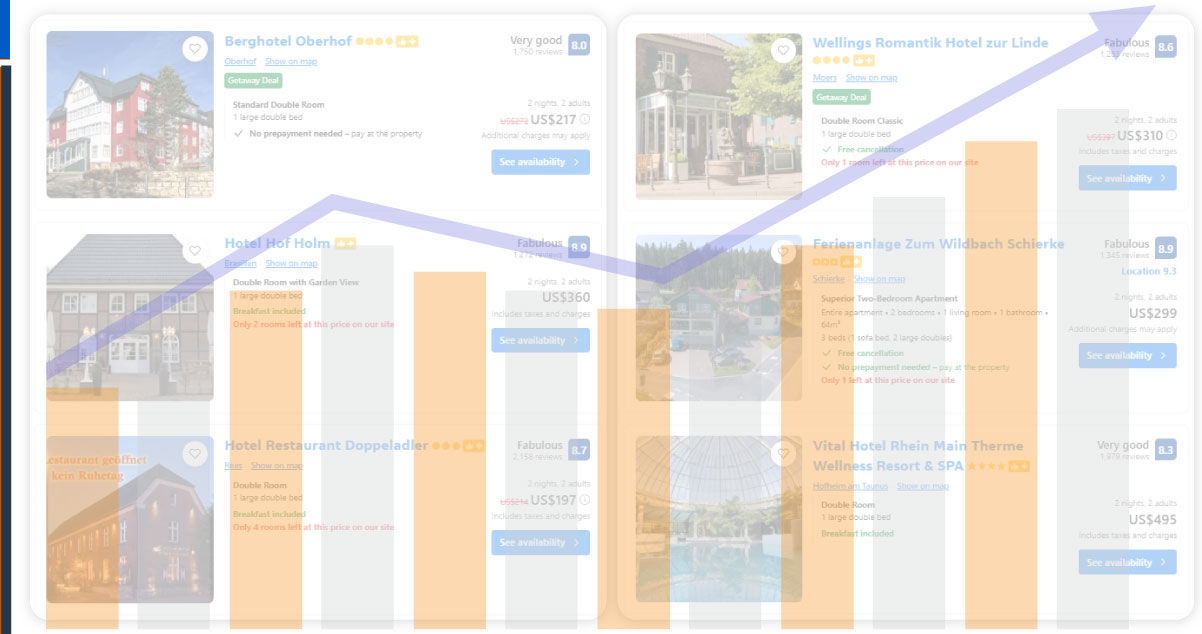
Data collection is the initial phase in unlocking the value within Hotel Availability Forecast Datasets. After data is gathered, it's essential to consider the following processing strategies to extract meaningful insights:
1. Data Cleaning and Standardization
The raw data obtained through scraping frequently needs considerable refinement to ensure accuracy and consistency for further analysis. This cleaning process involves several key tasks:
- Normalizing location data for precise geographic analysis, ensuring uniformity across diverse sources.
- Standardizing price formats and currencies to enable meaningful comparisons and facilitate cross-border analysis.
- Correcting encoding issues in text fields to prevent data corruption and maintain integrity across various systems.
- Resolving inconsistencies in amenity descriptions, ensuring that similar features are described uniformly and coherently for enhanced usability and insight extraction.
2. Analysis Methodologies
In the realm of modern Hotel Data Intelligence, a range of sophisticated analytical techniques are employed to derive actionable insights:
- Pricing Analysis: Monitor and analyze historical pricing trends to identify key seasonal fluctuations and the implementation of dynamic pricing strategies.
- Sentiment Analysis: Leverage natural language processing techniques to analyze review data, gaining a deeper understanding of the factors influencing guest satisfaction.
- Competitive Positioning: Assess and compare hotel features alongside their pricing to uncover market gaps and opportunities for strategic growth.
- Demand Forecasting: Utilize availability data to accurately predict peak demand periods, enabling better preparation and resource allocation.
3. Visualization and Reporting
Unlock the power of your data by transforming raw insights into actionable intelligence through sophisticated visualization techniques:
- Interactive dashboards enable real-time monitoring, allowing you to track key metrics and performance indicators instantly, ensuring timely decision-making.
- Geographic heat maps offer detailed regional analysis, helping you understand spatial trends and patterns influencing market behavior and performance.
- Trend charts provide a historical perspective, allowing you to identify long-term trends, seasonal fluctuations, and emerging patterns in your data.
- Competitive matrices facilitate strategic positioning by comparing key competitors, helping you assess strengths, weaknesses, and opportunities within your industry or market.
How Travel Scrape Can Help You?
We offer comprehensive and efficient solutions for extracting European Hotel Information From Booking.com. Our solutions eliminate technical challenges and ensure compliance with legal standards.
Our suite of services includes:
- Custom Scraping Solutions: We provide bespoke scraping solutions that are meticulously designed to meet your unique business needs and data requirements.
- Ready-to-Use Datasets: Access pre-scraped Hotel Availability Forecast Datasets that cover top European destinations, enabling you to make informed decisions quickly.
- Professional APIs: Our influential Travel Scraping API provides real-time access to hotel data, ensuring seamless integration into your systems.
- Compliance Assurance: Rest assured that all our services adhere to legal frameworks and comply with the website’s policies, ensuring smooth and secure data extraction.
- Data Analysis Services: Our team transforms raw hotel data into meaningful insights, empowering you to turn data into actionable business intelligence.
- Ongoing Support: Receive continuous updates and improvements to adapt to Booking.com’s evolving structure, keeping your data fresh and accurate.
Our expert team combines advanced technical skills with industry knowledge to deliver insights that meet and exceed your business objectives, fostering growth and a competitive edge.
Conclusion
Unlocking the power to Scrape European Hotels From Booking.com offers a significant edge in today’s competitive hospitality market. Hotel data extraction can revolutionize your business strategy and decision-making when executed precisely and adhering to legal and technical standards.
As the travel industry evolves, leveraging data is crucial for staying ahead. Whether optimizing pricing, developing innovative solutions, or identifying trends, Travel Industry Web Scraping is now a key tool. If you lack the technical resources, specialized providers like us can help. Our experts are ready to guide you through the process and equip you for success in the competitive Travel Aggregators and hospitality sectors.
Don't fall behind—take your business to the next level with cutting-edge hotel data insights. Contact us today to explore how our custom scraping solutions can provide the competitive edge you need in 2025 and beyond.